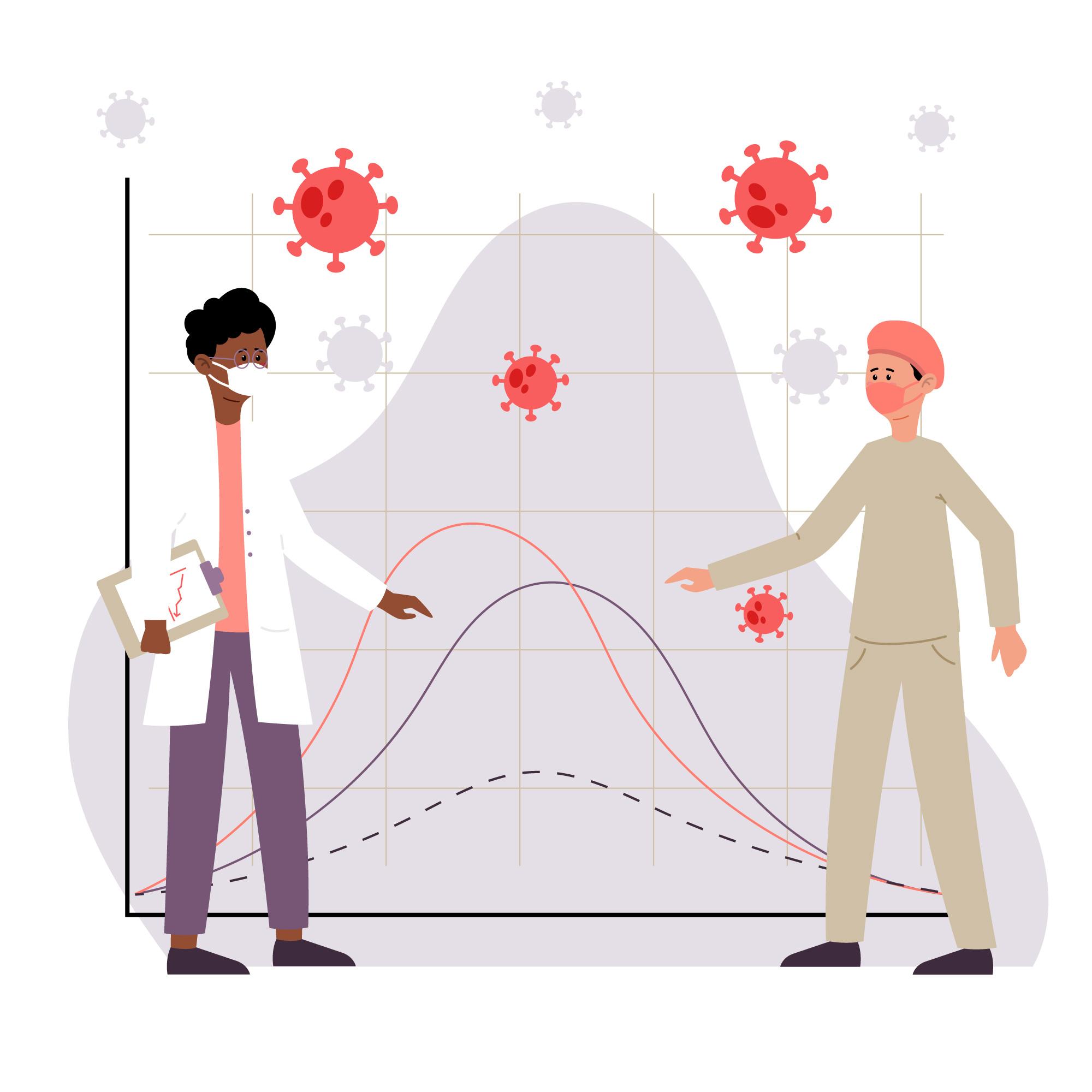

Paxlovid is still a highly effective treatment for the majority of persons infected with SARS-CoV-2, and it prevents many COVID hospitalizations and fatalities.
However, for millions of immunocompromised patients whose illnesses might last for months, the antiviral drug’s potency can wane as the virus mutates. Although patients may initially see a reduction in viral load, once these mutations emerge, the virus can resurface unaffected by the treatment, posing a risk of illness and even death.
A study that demonstrates how the virus mutates to avoid Paxlovid could now aid chemists in developing stronger medications that are more difficult for SARS-CoV-2 to avoid. The study, headed by Columbia University and numerous Chinese universities, was published in Nature on September 11 (link is external and opens in a new window).
“This type of approach helped to improve HIV drugs, and we think it’s a good way to improve antivirals against SARS-CoV-2,” says Sho Iketani, PhD, assistant professor of medical sciences at Columbia University’s Vagelos College of Physicians and Surgeons and Aaron Diamond AIDS Research Center, who co-led the research with David D. Ho, MD, the Clyde ’56 and Helen Wu Professor of Medicine, professor of microbiology & immunology, and director of the Aaron Diamond AIDS Research Center, and Haitao Yang, PhD, of ShanghaiTech University.
“Right now, patients only have three antiviral drug options, nirmatrelvir (the active ingredient in Paxlovid), remdesivir, and molnupiravir. More choice is always better.”
SARS-CoV-2 escape mutations
Iketani and colleagues investigated how mutations allow the virus to evade nirmatrelvir. Images of the medicine bound to its viral target, Mpro, revealed that changes in the binding pocket have the most impact, preventing the drug from binding.
The same alterations permitted the coronavirus to escape another Mpro inhibitor, Japan’s ensitrelvir, albeit to a lesser extent, indicating how Mpro inhibitors could be improved.
Paxlovid-resistant viruses with these mutations have been discovered in immunocompromised patients as well as those with persistent infections.
“The good news is that it seems that the virus suffers a pretty big fitness penalty when it develops resistance, so I don’t think we’ll see resistant variants spread widely if it must balance this loss,” Iketani says.
Paxlovid-resistant variants of SARS-CoV-2 are also unlikely to develop outside of the immunocompromised population. “Because otherwise healthy individuals taking Paxlovid will rapidly clear the virus, the opportunity for the virus to mutate to evade the drug in the general population is low,” Iketani says.
more recommended stories
 CTNNB1 Syndrome Study Explores Beta-Catenin Defects
CTNNB1 Syndrome Study Explores Beta-Catenin DefectsKey Takeaways Researchers in Spain are.
 Tuberculosis Breakthrough with Experimental Antibiotics
Tuberculosis Breakthrough with Experimental AntibioticsKey Takeaways Experimental antibiotics disrupt a.
 National Healthy Longevity Trial Receives Federal Support
National Healthy Longevity Trial Receives Federal SupportKey Summary Up to $38 million.
 Red Blood Cells Improve Glucose Tolerance Under Hypoxia
Red Blood Cells Improve Glucose Tolerance Under HypoxiaKey Takeaways for Clinicians Chronic hypoxia.
 Nanoplastics in Brain Tissue and Neurological Risk
Nanoplastics in Brain Tissue and Neurological RiskKey Takeaways for HCPs Nanoplastics are.
 AI Predicts Chronic GVHD Risk After Stem Cell Transplant
AI Predicts Chronic GVHD Risk After Stem Cell TransplantKey Takeaways A new AI-driven tool,.
 Red Meat Consumption Linked to Higher Diabetes Odds
Red Meat Consumption Linked to Higher Diabetes OddsKey Takeaways Higher intake of total,.
 Pediatric Crohn’s Disease Microbial Signature Identified
Pediatric Crohn’s Disease Microbial Signature IdentifiedKey Points at a Glance NYU.
 Nanovaccine Design Boosts Immune Attack on HPV Tumors
Nanovaccine Design Boosts Immune Attack on HPV TumorsKey Highlights Reconfiguring peptide orientation significantly.
 High-Fat Diets Cause Damage to Metabolic Health
High-Fat Diets Cause Damage to Metabolic HealthKey Points Takeaways High-fat and ketogenic.

Leave a Comment